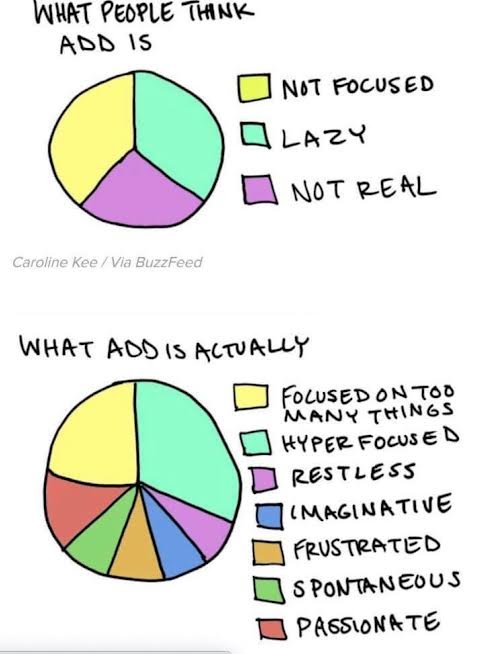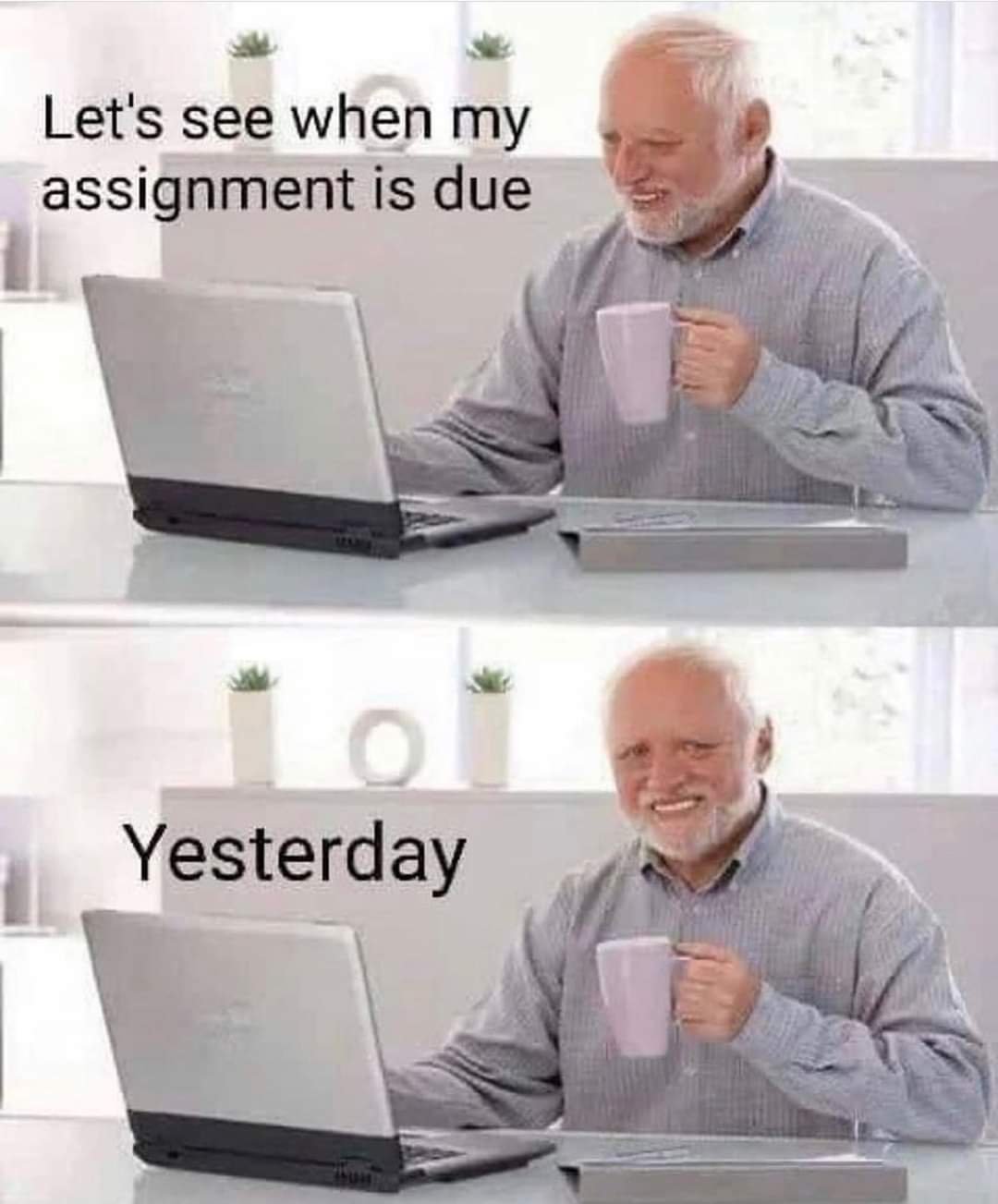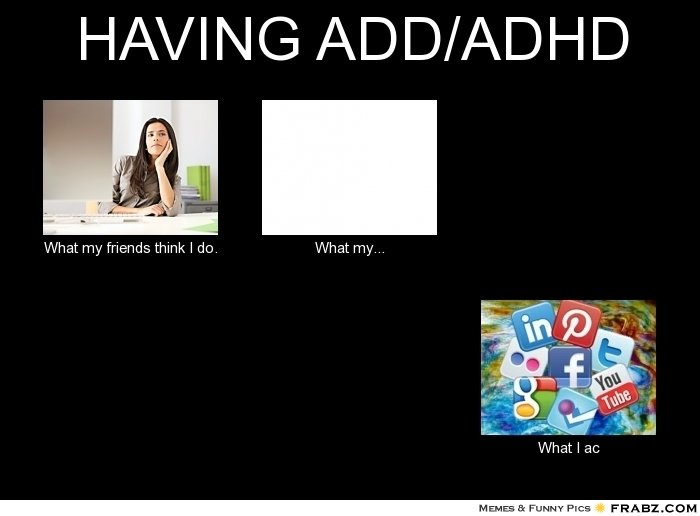In Her Words: College Success Tips for Female Students with ADHD
/College Success Tips for Female Students with ADHD
As a high school student, Taryn aced her Honors and AP courses. She was active in orchestra, field hockey, her church youth group and after-school job. She graduated cum laude and even earned an academic scholarship. No question - she was ready for college!
Or so she thought.
The college learning experience, she quickly learned, was completely different than high school. Managing classes, a social life and extra-curricular activities used to be easier with built-in support and structure from parents, teachers and a structured school schedule.
In this new learning environment, however, her academic success began to unravel.
She found herself missing class, falling behind on reading and assignments, forgetting to pay bills, chronically late for classes, and always scrambling at the last minute to finish writing papers. She quickly became frustrated and discouraged. It wasn’t until an academic advisor reached out to offer support that she could admit she needed help. As someone who had never struggled before, nor had any background of socially disruptive behavior, she had not understood these red flags.
For many other women with ADHD, this is their story, too.
Women with ADHD experience a unique set of challenges in college. They sometimes go undiagnosed, overlooked, misunderstood and unsupported. Unfortunately some miss out on learning helpful strategies and accessing available resources to help them be successful.
What can ADHD look like in college women?
Disorganized or forgetful
Takes longer to process information
Overwhelmed and stressed
Works hard to gain approval, may have difficulty admitting they need help
Hypersensitive to surroundings or tendency to shut down when overwhelmed or overstimulated
Often running late
Feelings of shame for not achieving enough
We’ve heard from 44 women with diagnosed or self-diagnosed ADHD on some of the top challenges they experienced during college — and the solutions that helped them navigate obstacles to achieve academic success!
One clear message: the college experience for women with ADHD doesn’t look the same as a typical student.
41.9% of women we surveyed attended two different colleges or universities, and 27.9% attended three or more. 39% changed their major multiple times, delaying a traditional graduation time frame, a key factor in lower retention rates.
28% reported being a high-achieving high school student who fell apart academically during college. Without any built-in structure, transitioning to college life can be especially difficult for students with ADHD. For many women, the college campus can be the first time they run into trouble. 66% of respondents reported struggling with ADHD issues during college without realizing these problems were ADHD-related until later.
Advice from women who have been there — and succeeded!
Despite the hurdles ADHD can present, the women we surveyed showed incredible resilience, passion and creativity in building solutions that work. (It’s no wonder people with ADHD make great entrepreneurs!)
Read on to hear their top tips & strategies that helped them navigate some common problems that arise during college.
I have trouble managing time. I’m the queen of procrastination, never giving myself enough time to finish assignments or get to class on time.
Demands on time management and organization rise significantly during college. A whopping 93% of survey respondents reported trouble managing their time during college. In fact, a lot of people with ADHD tend to be “time-blind” and struggle to use time effectively.
During college, this can be the first time a student must keep track of class times, assignments, quizzes, club meetings, social activities, and work commitments. To avoid missing important dates and deadlines, an effective calendaring system is critical. It’s worth the effort to explore what format works best for you (e.g., digital, paper, color-coded, bullet journals, etc.)
“I wrote down EVERYTHING in a planner, including when to do homework ahead of time.”
“Try to set your own deadlines a little earlier than the actual ones.” Paper due on Monday? Aim to have it done by Saturday night.
“Learn to say no when you need to. Don’t take on everything thrown at you.”
“As a sophomore, I scheduled all of my classes in the morning, and I got an on-campus job in the afternoons. My day was extremely structured. I went from struggling freshman to making the Dean’s List.”
“Medication…extreme minimalism… timers.”
“I couldn’t believe the difference medication made. It felt like I finally took everything off of hard mode.”
“Handwrite calendars and have them visually available.”
It’s difficult to plan ahead or break down big projects into manageable steps.
Difficulty with executive functioning and prioritizing is extremely common for people with ADHD, including 77% of respondents. For these students, it can be challenging to complete daily tasks, break down big goals and assignments into smaller steps, or even figure out how to get started on a project.
Faculty and staff on college campuses can support students by guiding them along intentional academic or co-curricular tracks. Students can reference to-do lists, track their progress visually and see what’s expected of them at a glance. Administrators can assign tasks to specific students and quickly identify and intervene when a student is falling behind.
“For a big project, I visualize a cake. I want to eat the whole cake. So I divide it into bite-size chunks. Each bite will be a step toward completion. I write down what each bite should be.” 🎂🤔
“I know a lot of people buy planners and don’t use them, but my planner was my best friend. I used the calendar part and color-coded my classes. Then, at the end of each week, I’d sit down and write out on a separate page (I have a happy planner so I can add pages) and wrote out what I had due coming up in the week. If you have a really big assignment that requires more time, get a little sticky note and write what it is and when it’s due and put it with that week. I’d use this paper as a base of what I needed to do each day. Sometimes I’d even use a daily page that’s broken down into the half hour. That gave me a really good idea of how long assignments actually take me so I have less of a struggle allocating time for things and then getting stressed when I give myself too many things to do and not realizing how much time it took.”
“Ask for help from TAs, academic advisors, or older student mentors. Join a student org for neurodivergent students/women, if there is one.” If there isn’t, start one and lead the way for others.
“Reward yourself for even small achievements.”
I can’t seem to stay organized or manage clutter. I forget books, assignments and even tests. My notes are a mess.
70% of respondents struggled to stay organized during college. Many had great advice for useful strategies that helped them succeed!
“Clutter can take many forms: digital content & information, overflowing emails, stacks of paper, piles of clothes. All of it can lead to distraction and feeling overwhelmed. Take time to assess and reduce the noise.”
“Find study partners who are more organized.”
“Make a plan with a friend or classmate to schedule study times.”
“Having a patient friend who stays with me and keeps me on track when I have to do a task or write a paper helped me immensely before I knew the term or knew I had ADHD. I wasn’t good at asking for help, so this only happened when a good friend intuitively offered such help. Now I ask for help and also GIVE help to my friends who have ADHD.”
“Accountability is a driving force. Make yourself accountable. Find your classes Discord - and work with other people. Remember, you’re just as smart as everyone in the room (if not smarter). Communicate with your professors. Most are human and want you to succeed.”
“Have a system for note-taking. I would handwrite notes and end each page with due date reminders and a to do list. Write things down on paper instead of typing (the physical/kinesthetic feedback helped with remembering and paying closer attention to what I was trying to remember.”
“I found Air Force ROTC my (second) junior year of college after already changing declaration of majors twice. I wish I had had that structure from the beginning of my Freshman year, a structured environment that holds you accountable to a certain GPA.”
“Sticky notes and/or calendars so you can see everything you need to do so you have a constant working checklist. Makes or breaks me.”
“Look into working with an ADHD coach to get yourself organized and declutter your environment.”
“One binder for EVERYTHING.”
I often have trouble with verbal instructions, note-taking, and miss out on key information when spoken.
Some students with ADHD may have trouble processing sensory input, including auditory information. Over half of survey respondents experienced auditory processing difficulty. In other words, it can be harder to understand things they hear. Students with ADHD or auditory processing disorder can benefit from accommodations like written instructions, quiet areas for independent work, extra processing time, or assistive listening devices.
“I tend to write everything down and parse through it later to extract important details. Being able to access a recorded lecture, slides, or supplemental written materials I can refer back to is helpful."
“Digital or paper flashcards are a great study tool for visual learners. You can make your own and flip through them anytime on the go.”
It can be difficult to focus or pay attention in class or stay on task while studying.
A college campus is filled with activities and temptations that could distract anyone from getting work done. 72% of survey respondents reported getting sidetracked during college. For folks with ADHD, sometimes this relates to sensory or stimulation needs and avoidances.
Work first, play later: It can be helpful to schedule study sessions in a place that suits your sensory needs, whether that is a quiet or buzzing place or somewhere in between. Stick to your schedule and reward yourself for following through. (Bonus: This helps minimize procrastination!)
Be mindful about where you sit in class. Find what works for you! For some, it’s best to sit front and center to help focus. One respondent shared, “I tried to sit at the side or back, not too close to people, so there wasn’t as much distraction, and it was better not to sit facing a window as well.”
“When I needed to focus on one task to completion, I found that listening to long electronic music sets helped me tune out the distractions and allowed me to fully focus.”
“Just sitting and listening while not ‘doing’ anything is very hard.” Utilize fidget toys or take movement breaks.
“Noise-canceling headphones and a good playlist of upbeat instrumental music worked magic.”
Silence can be a distraction for some, but others benefit from it. “Have a quiet study space separate to home. Use library study areas where you don’t know anyone. Work late or weekends in art studio so everyone else is gone.”
“I thrive with background noise, so the library was brutal. An off-campus coffee shop was best for me to concentrate – just enough low volume buzz without getting distracted by people I know or conversations that relate to me which are harder to ignore.”
I find it difficult to relax or destress. Sometimes I feel so overwhelmed and exhausted that I simply shut down.
Dealing with stress effectively is critical to academic success. 74% of survey respondents reported feelings of distress including low self-esteem, inadequacy, chronic stress/chaos or difficulty relaxing.
College students with ADHD can experience “task paralysis” when they feel overwhelmed with responsibilities and expectations and aren’t sure where to start, or even how to prioritize everything that needs to be accomplished. For this reason, it’s important for students with ADHD to be proactive about accessing the help and accommodations they need to do their best.
Campuses have resources available to help their students succeed. If you find yourself falling behind or struggling, contact your advisor, counselor, professors or even a TA to help get back on track.
“Structure and healthy habits are critical. I spent so much of my time in survival mode that I didn’t develop structure and habits that would make life more healthy and stable. I never exercised. I didn’t eat too well. I leaned in to nasty anxiety spirals. Long after school, when I finally had structure and healthy habits, I did very well even unmedicated. When that gets disrupted, it’s ever so critical to really make sure to get back on track.”
“When you feel stuck, ask yourself what is one small task you can do to move forward.”
“Do not be afraid to seek professional help due to a negative stigma or feeling of inadequacy. Everyone learns differently and has their own way of processing and that is ok and normal.”
“Get an academic coach; take a lighter class load; attend community college or online classes before going to a large university; get accommodations; have a support group.”
“Get diagnosed, get medicated, do mindfulness, exercise, take care of yourself. Learn as much as you can about ADHD so you don’t always blame yourself and so that you can figure out how it shows up in you, and that can help you form strategies.”
“Knowing is half the battle. I didn’t recognize there was a problem so I couldn’t address it and come up with strategies to help me cope. As a result, it took me an extra 5 years and 3 total tries to complete my degree.”
“Go to a smaller institution, have a counselor that you check in with regularly, allow yourself to take a break from school if needed.”
“Identify ADHD early and if possible, get diagnosed and start working with a coach. I wish I would have done those things.”
“You are more than your symptoms. You are stronger than you think.”
I have trouble waking up and getting out of bed.
Do you frequently sleep through 5 alarms and then get ready in a frenzy, accidentally leaving your book or homework behind on your rush out the door to make it to class?
This may be surprising to some, but having trouble waking up and getting going in the morning is a pretty common issue for college students with ADHD. 70% of the women in our survey reported this issue during college.
“Stick to a consistent sleep schedule that works for you. Lack of sleep causes further attention problems and increased stress. If medicated, follow your medication as prescribed and work with your doctor to find the best dosage or timing.”
‘Avoid classes before 10AM.” Be honest with yourself about what you can realistically handle. If you need to start your classes later because you know you will always be late, be mindful of this when registering.
I’m sensitive to rejection and have trouble asking for help.
Many female students with ADHD may be used to struggling in silence. They may blame themselves for perceived shortcomings and worry about disappointing faculty or staff. Those without a diagnosis may have trouble self-advocating or reaching out for help.
If this sounds like you, it’s important to reframe how you think about campus resources - they’re available because students like you will benefit from them. Your school wants you to succeed! Suffering alone helps no one, so speak up for yourself and your needs. 🙌
“Talk to your professors! I am an attorney now but also adjunct at a university. I try so hard to make my classes neurodivergent-friendly, and have a LOT of discretion in providing accommodations of all sorts, but ONLY IF PEOPLE TELL ME THEY NEED THEM. Even if you aren’t sure what the problem is, please tell your professors what you are struggling with! The good ones will be able to work with you to narrow down the potential problems and come up with creative ways to solve them. :) “
“Don’t be afraid to ask for accommodations, access resources available to you through college counseling or supportive groups, ADHD-knowledgeable tutors.”
I experience periods of hyperfocus during which important tasks slip through the cracks.
Students with ADHD may have a love-hate relationship with their tendency to hyperfocus. When you focus on something that is interesting to you, time can get lost and hours blur together. This can be an incredible asset in a cram session or important project. However, hyperfocusing on the wrong thing can be derailing, resulting in unfinished or rushed work and turning assignments in late.
56% of women surveyed reported periods of hyperfocus. One way to maximize this ability, though, is to treat it like the superpower that it can be. 🦸
“Having ADHD in certain careers is actually really useful as well. It can mean you do things faster, you waste less time, you have more creative, outside the box ideas to share, and you get stuff done (when it needs to be done). A lot of famous and important people have done well with ADHD. No reason you can’t, too.”
“Do what you love. If you don’t ‘feel’ it, it’s likely going to be a very rough road. It helps so much to be passionate about your major. It will fuel you through the dull courses that make you want to give up. It will help make your major courses easy due to your interest.”
“Pick a major that you find interesting! I was bored to death in my undergraduate chemistry courses, but paid rapt attention and did very well in my masters’ public health courses.”
“If you are unsure of your major, take different classes to see where ‘your people are’. For me, I switched my major six times during undergrad and twice during my masters degree. Once I found a group I resonated with, life became a lot better!”
“Know why you are going. Find your passion FIRST. ADDers tend to change their mind a lot. Make sure it’s something you are STILL interested in a year later. It’s okay to make changes when something isn’t working for you.”
I have trouble sticking to a plan when the going gets tough.
1 out of 3 survey respondents reported trouble persevering through obstacles. It’s important to set up realistic expectations for yourself as a student. It’s also helpful to acknowledge your accomplishments and learn from mistakes with a positive attitude. Reach out to your academic advisor for tips and advice on building resilience.
“Push through. I didn’t even know ADHD was the source of my problems until the summer before I started law school. Every step of the way I was challenged. I did what I could to persevere anyway. Just do what you can, even if you think it’s not enough because something is ultimately better than nothing. Also, be open with your professors if you’re uncomfortable. Don’t sit on your struggles because people are more willing to help than you think. Looking into accommodations might be beneficial as well. You deserve help and it’s okay that you need it.”
“When you take an exam, prepare the best you can, and tell yourself that you will do the best you can do for that day given the present circumstances; not the best you could ever do (in a vacuum).”
I have trouble building and maintaining satisfying friendships.
Over half of survey respondents reported trouble cultivating relationships during college.
Finding your niche on campus helps you develop a sense of belonging, another key factor for college success and persistence. Joining a club and attending events on campus helps you to make new connections with common interests.
“Browse your school’s student org directory, attend involvement fairs to chat with club leaders and regularly check the campus-wide events calendar for opportunities to get involved and explore your interests! Be careful not to overwhelm yourself. Know your limits. If you only have time for one club this semester, just focus on that one.”
“Join a peer group of other neurodivergent people.” An ADHD-centered group could be a great option! Participate in and help create workshops, discussions and speaker events for your campus community.
College life presents many new demands for all incoming students, from academic to social to organizational. Adjusting to these demands, without the structure and safety net of high school and home, can be especially challenging for students with ADHD.
Campus faculty, administrators and family members can help students with ADHD to have a very successful college experience! Supporting students with ADHD starts with understanding the challenges these students face, and promoting the resources and accommodations available to them. For students who may be reluctant to ask for help, visibility and easy access to these resources can mean the difference between scraping by versus achieving their best.
Helping college students with ADHD learn to build structure and strategies for themselves will also set them up for success in their future careers!
RESOURCES:
Child Mind Institute’s 10 Tips for Going to College with ADHD
Succeeding in College with ADHD - FACT SHEET
Choosing Your Dream College: 6 Criteria for Students with ADHD
ADD.org Resources list: Success tips, books, study skills, guides, etc.
Are you a campus leader interested in learning more about supporting and engaging your students on a centralized engagement platform? Please feel welcome to reach out to us to chat with a CampusGroups product expert. We’d love to hear about your campus!




















